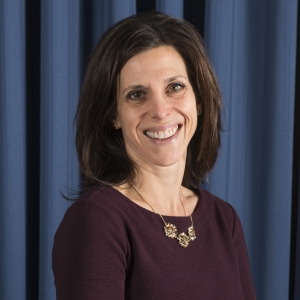 University of Connecticut (UConn) School of Public Policy (SPP) Professors Jennifer Dineen and Kerri Raissian have continually led conversations on Gun Violence Prevention.They co-founded the UConn Center for Advancing Research, Methods, and Scholarship in Gun Injury Prevention (ARMS) following the Gun Violence Prevention – Research Interest Group (GVP-RIG).
University of Connecticut (UConn) School of Public Policy (SPP) Professors Jennifer Dineen and Kerri Raissian have continually led conversations on Gun Violence Prevention.They co-founded the UConn Center for Advancing Research, Methods, and Scholarship in Gun Injury Prevention (ARMS) following the Gun Violence Prevention – Research Interest Group (GVP-RIG).
They wrapped up 2022 by serving as special editors for Volume 704 The ANNALS of the American Academy of Political and Social Science. They served as co-editors with Professor Cassandra Crifasi (Johns Hopkins), and their edition focused on “Preventing Gun Violence in America: What Works and What is Possible.” In 2023 the Niskanen Center published a series of policy briefs about Volume 704. Professor Raissian was also named as a Senior Fellow with the nonprofit. This summer she served as a panelist with the Center, and discussed both “Gun rights and responsibilities in America” and “Gun violence in America“ respectively.
Alongside Professor Crifasi, Professors Raissian and Dineen answered “Why Social Science?” with “Because Gun Violence Requires Social Science Solutions” in February. During the month of March they were featured on the UConn Collaboratory on School and Child Health (CSCH) podcast to discuss “The Impact of Gun Violence on Kids’ Health.” During their conversation they not only discussed the impact on kids’ health, but also the policies and practices that can address gun violence prevention. 
In April, Professor Dineen was on CT Public Radio in a segment about how “Acknowledging gun violence as a public health issue could be part of the solution.” The following month she was featured in a Time article about “How Mass Shooting Advice Places Responsibility on the Victims.” In this piece she highlighted a need for balance between training and conversation. The following month she spoke with CTInsider in a feature entitled “Connecticut sees rise in gun crimes following COVID pandemic:” During this interview she spoke about a change in gun ownership demographics, and a need to see where the legislation evolves nationally.
Alongside colleagues, Mitchell Doucette (Research Director, Leafwell), Damion Grasso (UConn Professor) and Cassandra Devaney (Judicial Law Clerk, Connecticut Judicial Branch) they published “Missouri Citizen Perceptions: Giving Second Amendment Preservation Legislation a Second Look” in May. Their abstract notes:
In June 2021, Missouri passed the “Second Amendment Preservation Act” (SAPA). Though SAPA passed easily and had gubernatorial support, many Missouri law enforcement agencies, including the Missouri Sheriff’s Association, oppose it. Missing from this policy conversation, and deserving of analysis, is the voice of Missouri citizens. Using qualitative interview data and survey data, we explored what if anything Missouri gun owners knew about SAPA and what they perceived its effects would be on gun-related murders, suicides, gun thefts, and mass shootings. Most Missouri gun owners had not heard about SAPA and were ambivalent about its potential effect on gun safety outcomes. Our findings also indicate that respondents’ attitudes toward SAPA and the impact of such policy on safety is driven by gun ownership (i.e., primary versus living in a household with firearms), partisan identification, and attitudes toward government firearm regulation.
July included an interview with Connecticut Health I-Team, where both professors discussed “Should Gun Safety Be On Your Doctor’s Check List? Researchers Want To Know Why It Isn’t.” During this interview they provided insight into their qualitative research which survyed 18 family physicians across 18 states.
Throughout the year both professors attended various summits and conferences dedicated to making an IMPACT within the gun violence prevention conversation. In Connecticut they attended the Safe Communities Summit and Safe Harbor Symposium. While in Chicago, IL they attended the “2023 National Research Conference for the Prevention of Firearm-Related Harms.”
- Professor Dineen presented “Gun Talk: Identifying the Facilitators and Barriers to Provider-Initiated Conversations Regarding Securing Firearms” and “Expanding the Definition of Firearm Exposure to Include Personal Ownership, Household Ownership, Previous Ownership, and Trauma.”
- Professor Raissian presented on “Does the Messenger Matter? A Survey Experiment to Understand Citizen Support for Firearm Policy in America.”
You can learn more about their work with ARMS, its ClearingHouse and the 2024 “On Target” virtual research seminar on the ARMS website.